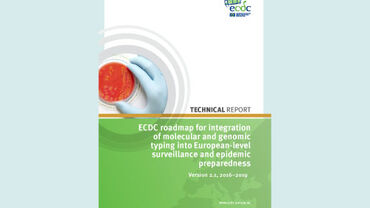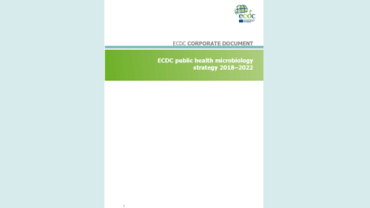Whole genome sequencing: new ECDC framework suggests priority diseases and implementation options
Whole genome sequencing (WGS) is a fast-moving technology, but the pace of change vary between pathogens/diseases and European Union countries. In a new report, ECDC proposes to prioritise the implementation of WGS depending on disease and public health application.
ECDC is supporting the Member States in the gradual use of sequence-based typing so they can participate in joint response and surveillance operations with EU/EEA Member States as enhanced used of whole genome sequencing in outbreak investigations and public health surveillance is essential for improved disease prevention and control.
The new report launched today suggests a list of priority pathogens/diseases and outlines technical implementation options for the medium-term integration of molecular/genomic typing information into EU-level surveillance and multi-country outbreak investigations. This framework builds upon progress made earlier and is intended to consolidate ECDC activities in this area that were initiated in 2012 to support EU/EEA Member States.
To implement the proposed operations, ECDC is developing a set of digital applications that will be used to share, store and analyse sequence-based or WGS typing data. Data providers will be able to submit sequences and related data directly to the application, and data will be jointly analysed with a high level of automation to identify and visualise transmission signals and patterns.
Multi-country outbreaks: over 2000 bacterial genomes sequenced in 3 years
WGS-based typing use for routine surveillance of at least one human pathogen increased from 0 countries in 2013 to 20 countries in 2017. In addition, the latest survey results indicate that by 2019, 29 Member States intend to use WGS-based typing for public health surveillance of at least one pathogen. Implementation was most extensive for Listeria monocytogenes and Neisseria meningitidis.
From November 2015 to June 2018, ECDC facilitated the investigations of 41 presumptive multi-country foodborne outbreaks caused by S. enterica, L. monocytogenes or STEC. As part of these investigations, over 2 000 bacterial genomes were sequenced. Investigations confirmed 31 multi-country outbreaks and identified the food source for 12 of these outbreaks.
In 2017, two multi-country outbreaks of drug-resistant tuberculosis were detected in Europe. ECDC supported the investigation with WGS-typing data production, exchange and phylogeographic/epidemiologic analysis. Both investigations helped identify the likely place of strain transmission and guided case-finding for treatment and control. In June 2018, a multi-country outbreak of carbapenem-resistant Klebsiella pneumoniae ST-392 was detected by analysis of epidemiological and WGS data among patients returning to Sweden and Norway from a hospital in Spain.
These successful investigations highlight the need for EU-wide sharing of viral sequence or bacterial WGS data in near real-time, together with epidemiological data for delineation and resolution of international outbreaks in both community and healthcare settings.
Read the report
Surveillance and monitoring
ECDC strategic framework for the integration of molecular and genomic typing into European surveillance and multi-country outbreak investigations
This strategic framework document presents a proposed list of priority pathogens/diseases and outlines technical implementation options for the medium-term integration (2019–2021) of molecular/genomic typing information into EU-level surveillance and multi-country outbreak investigations.







